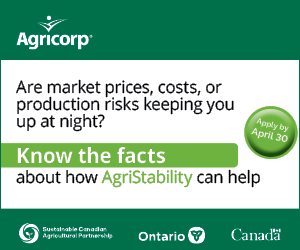Business side: Planning to sell?
CONVERSATIONS WITH BUSINESS EXPERTS

(R.H.) WHY SHOULD FARMERS BE THINKING ABOUT THE SALE OF THEIR FARM?
(T.B.) All farms will eventually need to be sold. The sale could be the owner’s choice upon retirement or transfer to the next generation, or it could be forced in the case of a death or other difficult situation. Even if a farm is transitioning within a family and is not thought of as a “sale”, sometimes we engineer it this way for tax benefits.
Farmers have many flexible options — such as the opportunity to sell at less than fair market value — and planning is necessary to ensure the sale takes place in a tax-efficient manner.
WHAT ARE THE MAIN TAX PLANNING CONSIDERATIONS?
Asset allocation
It is often the case that there are conflicting tax consequences for the buyer and seller of farm property.
For example, the portion of the farm purchase price allocated to the house and one acre will be exempt from tax under the principal residence exemption. The seller will want this value to be as high as possible to avoid taxable gains on this portion of the sale, however the buyer will prefer a lower amount to potentially increase a future tax-free gain. In the case of equipment, buildings and quota, the seller will want to minimize the allocation of the price to these assets to avoid potential taxable income whereas the buyer will want more value assigned to maximize deductions against taxable income.
Because of the opposing interests, both parties should work to agree on the allocation of assets and should certainly have these values recorded in writing through a purchase and sale agreement.
Tax programs
One of the most important considerations is related to capital gains exemptions. This is an opportunity unique to small business owners whereby they can get tax-free money out of the business. When planning a sale, farmers should find out whether their farm qualifies for a capital gains exemption and how much is available. The exemption currently amounts to $800,000 — a limit that will be increased in 2015 and subsequent years as it is indexed to inflation. Land and quota qualify as assets under this program.
For assets that do not qualify under capital gains exemption, such as inventory, farmers could consider Registered Retirement Savings Plan (RRSP) options. If capital cost allowance has been claimed on items such as quota or equipment to reduce their depreciated tax cost, any proceeds above this cost and up to the original cost of the asset are not eligible for the exemption. In situations like this, proceeds could be used to make a lump sum RRSP contribution. Even if farmers have not used an RRSP in the past or do not want a long-term strategy based on this type of plan, it may make sense to make a one-time contribution to offset tax payable in the year of the sale. Periodic withdrawals can then be made at a lower marginal personal tax bracket.
In addition, the possibility of capital gains reserves should be considered in all farm sales. This allows a seller to delay the inclusion of a capital gain in taxable income over five years, or 10 years in the case of a sale to the seller’s children. The seller must take back a loan as part of the sale agreement and the mortgage must be received evenly over the length of time of the gain.
Timing
The seasonality of cash flow for crop farmers means planning considerations should include timing of the sale. It is typical for growers to have certain months with significant income and few expenses, such as January through March. If the farm has a December 31 year end, I would recommend planning the sale near the end of the year after fall expenses have been recognized. If the sale is planned for the beginning of the year where farming income is expected, the tax implications will be more significant.
Staggering the sale over multiple years could also be considered to make the sale more tax-efficient.
WHAT OTHER FACTORS DO FARMERS NEED TO CONSIDER?
Planning a farm sale also involves thinking about life after the sale is complete. Farmers should take time to reflect and consider if they are going to continue to work. Sellers also need to determine their future cash flow needs. Depending on lifestyle expectations, investment and tax planning strategies could change.
I also recommend that farmers discuss the sale with all family members, even if they are not directly involved with the business. The structure of the sale has an impact on the inheritance of all children and needs to be discussed as a family.
WHO SHOULD BE INVOLVED IN THIS PROCESS?
In addition to a lawyer and accountant, sellers should also consult with a financial planner. As a team, these professionals can recommend strategies to maximize both investment returns and tax efficiencies. Because of the complex nature of many farm sales, I recommend consulting with a professional at least one year prior to the expected sale. As an accountant, I use a checklist of discussion items and potential issues each year to proactively help my clients start thinking about their future sale. •







